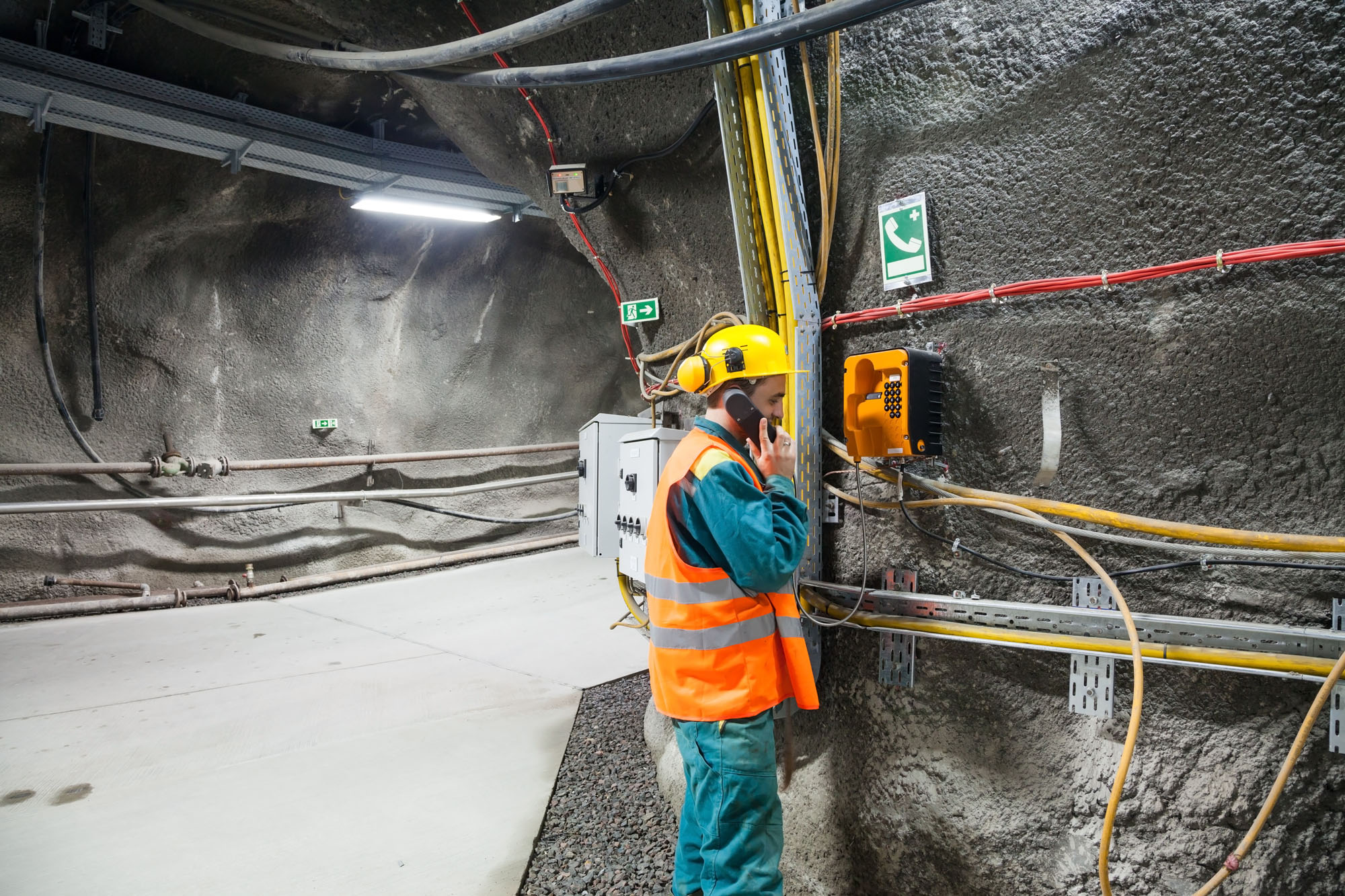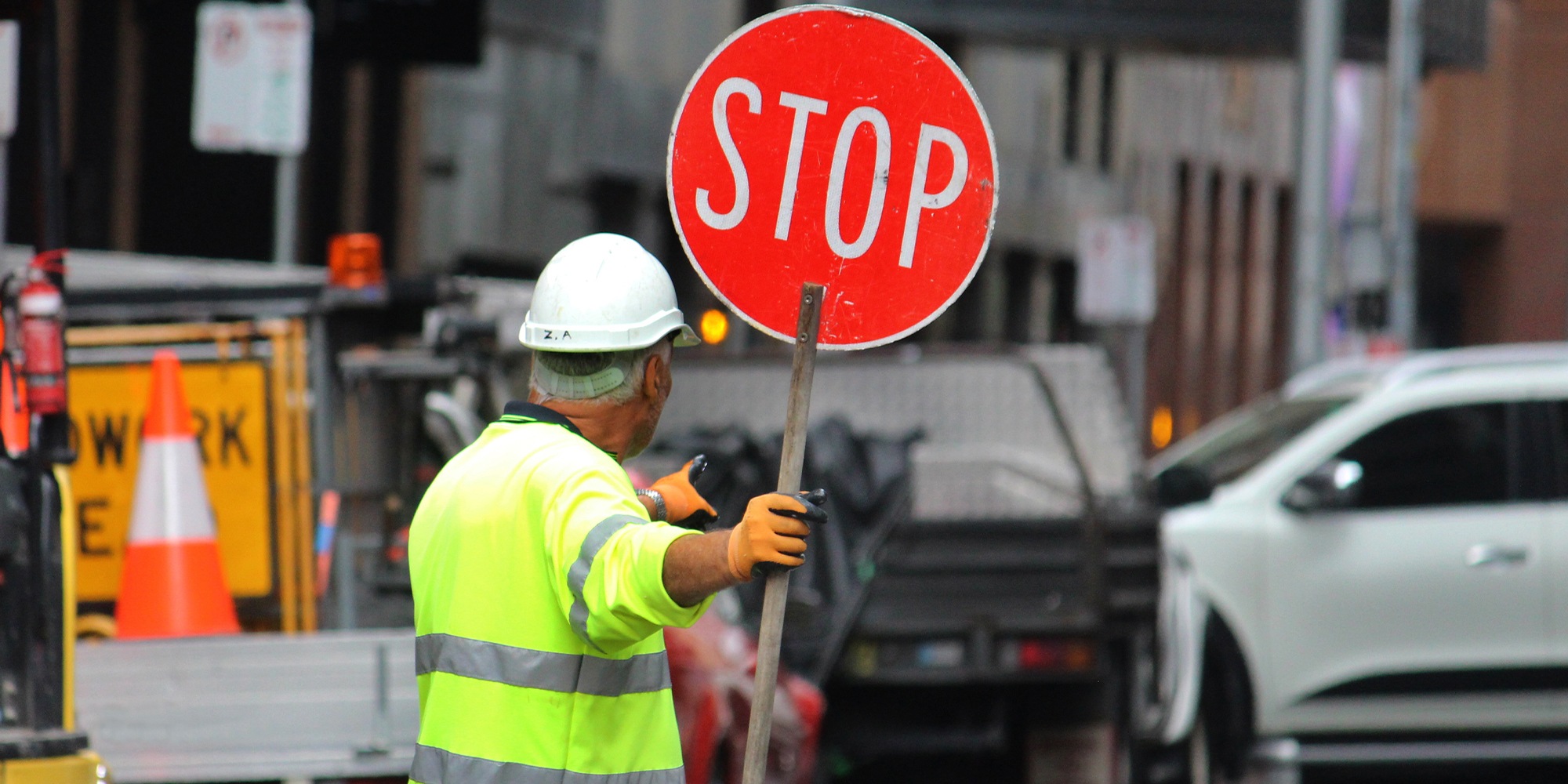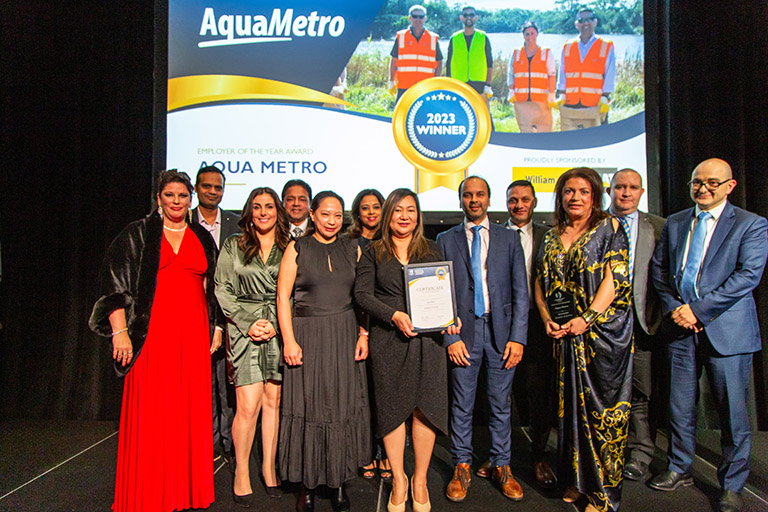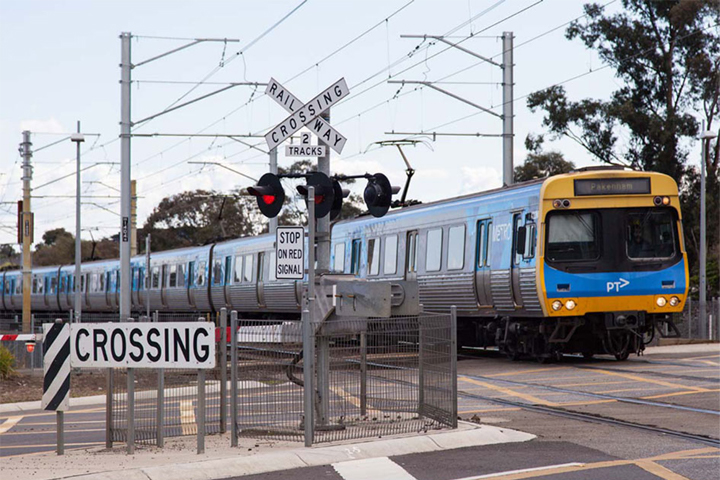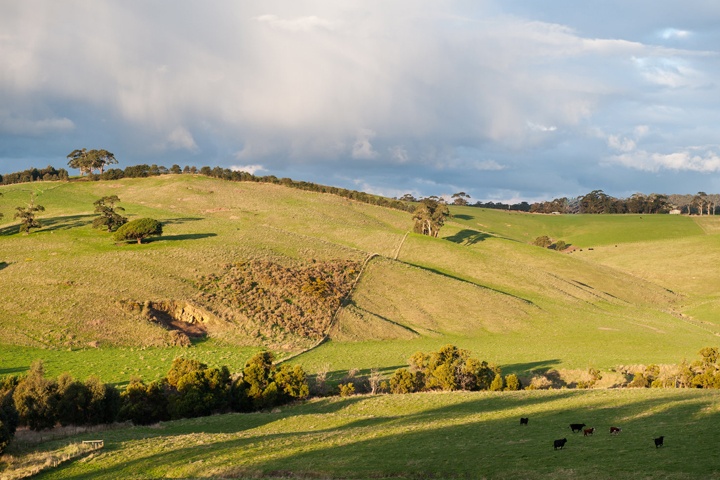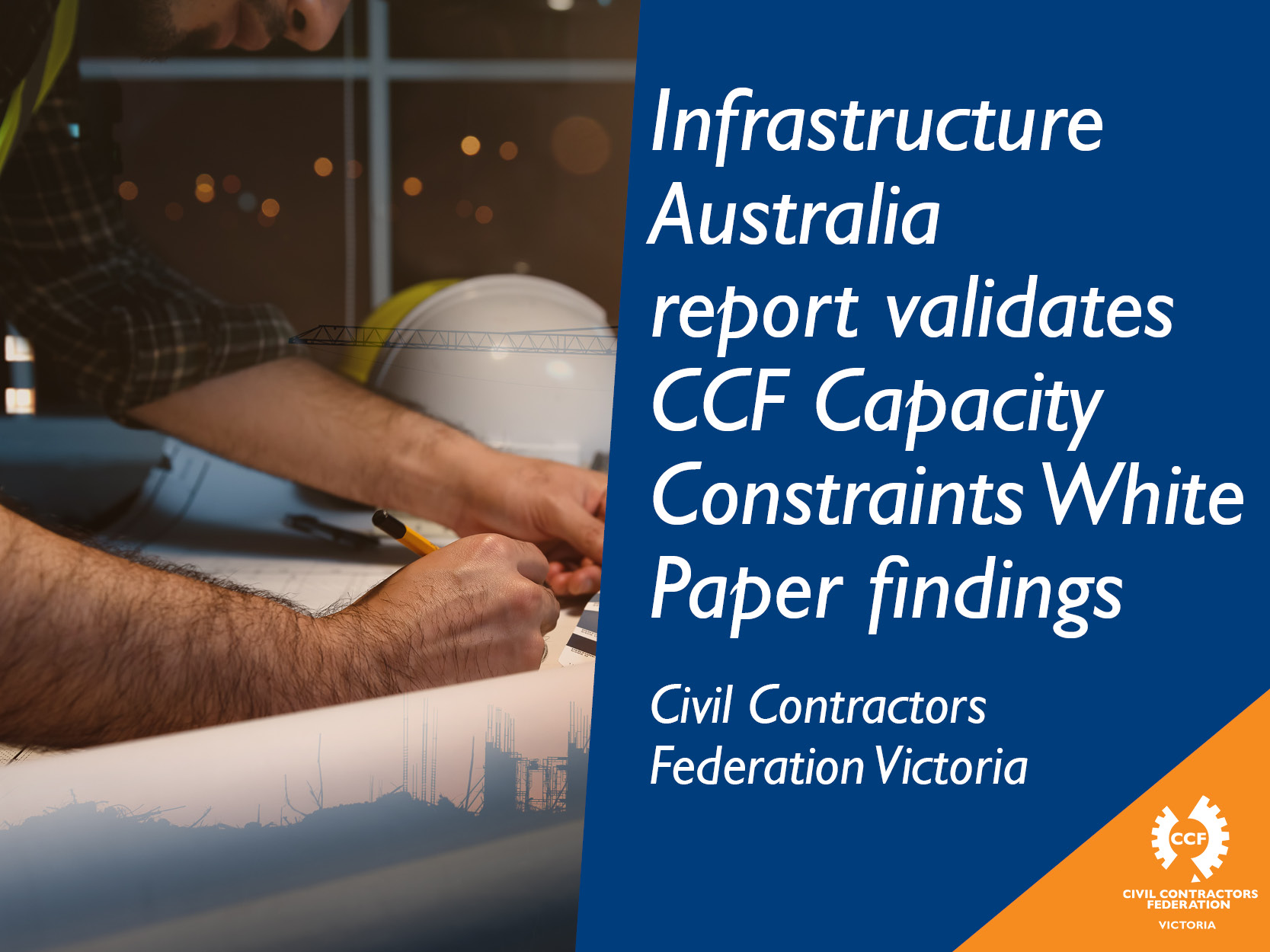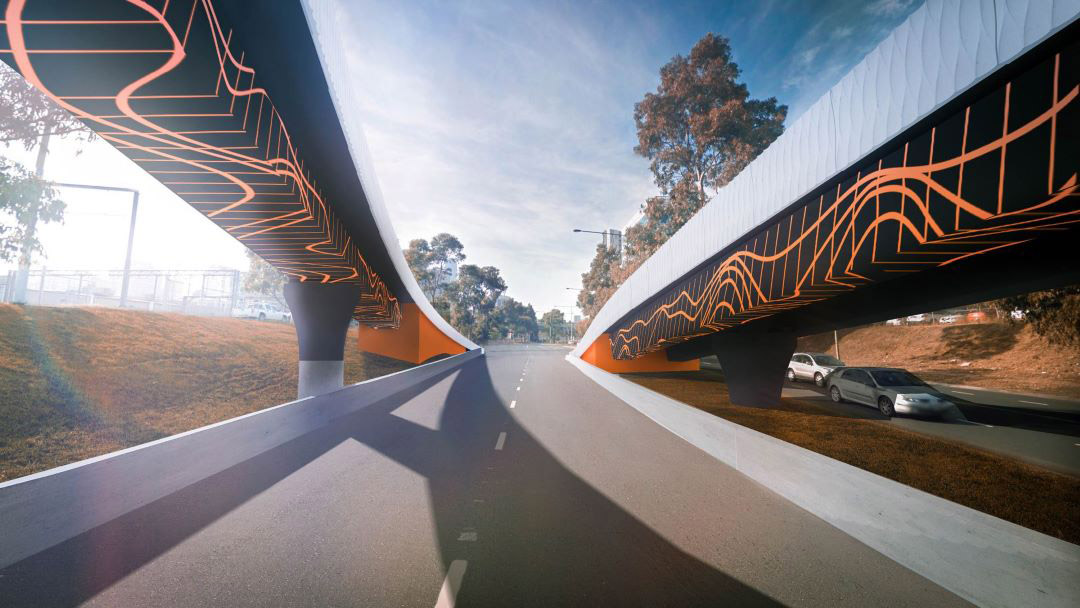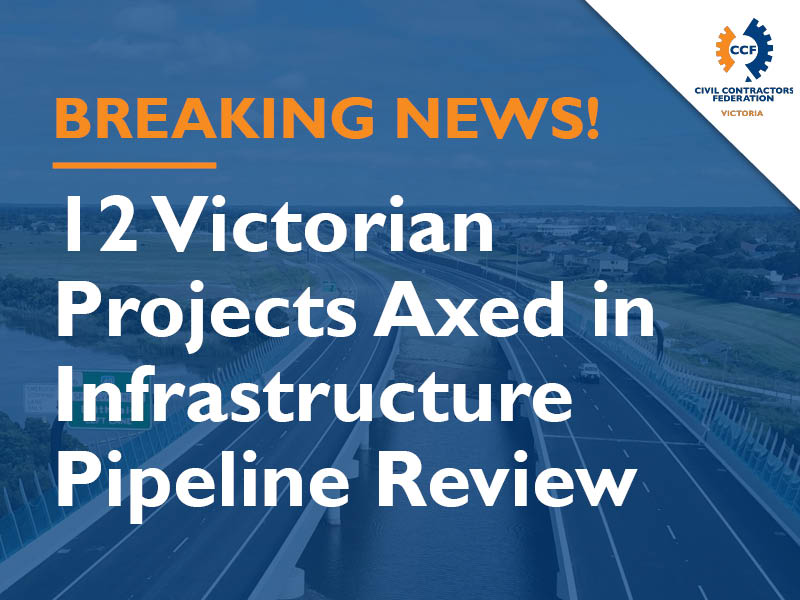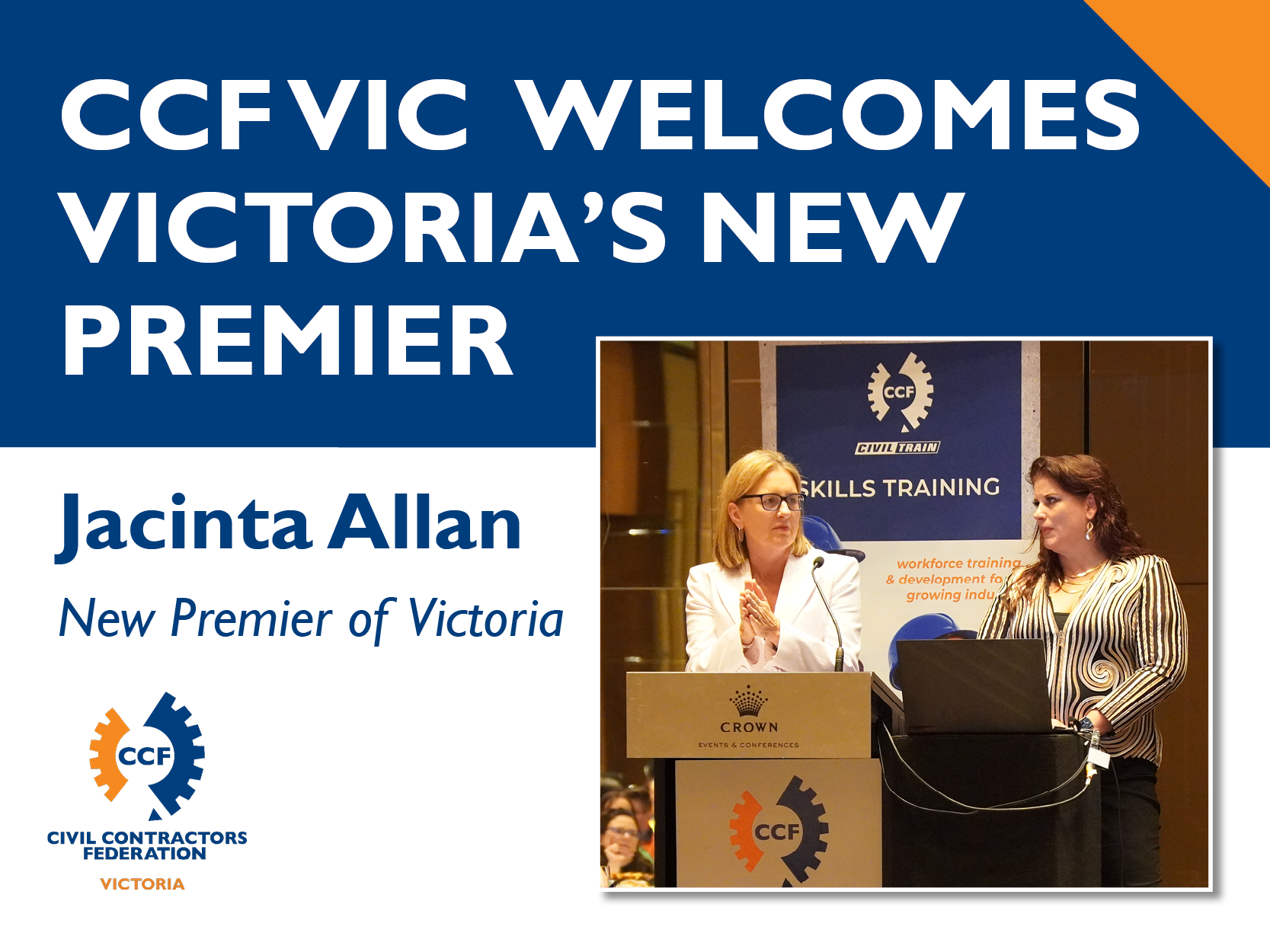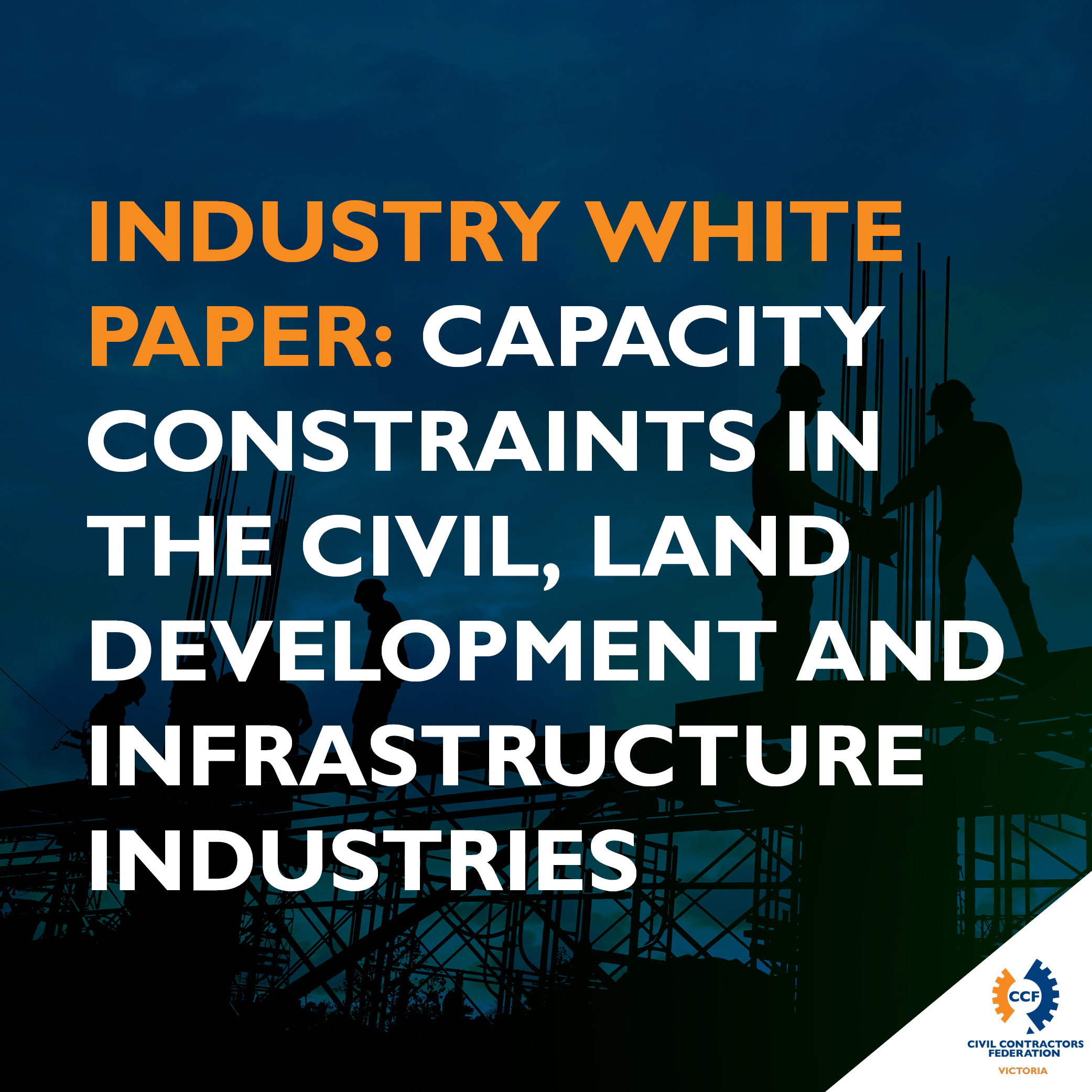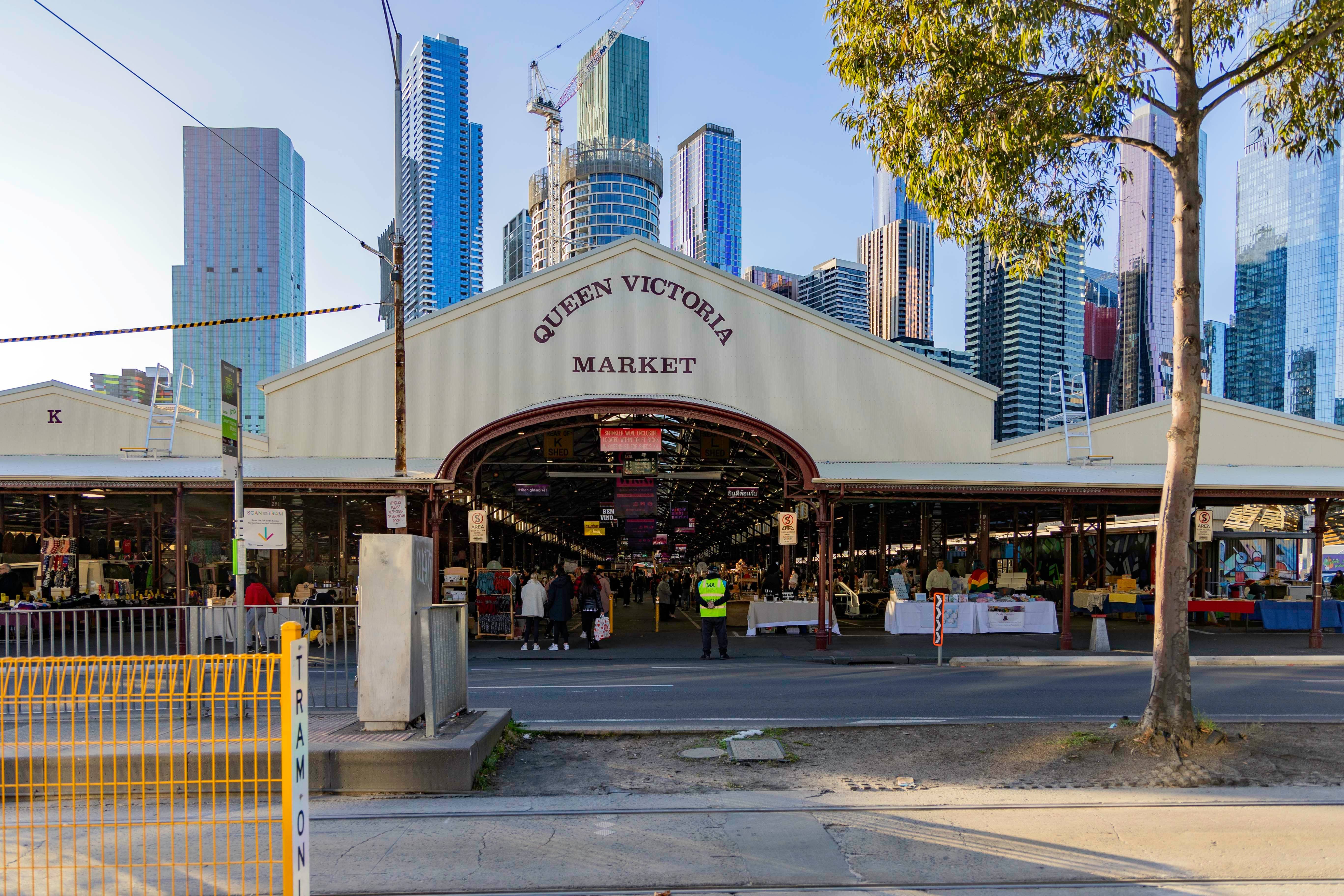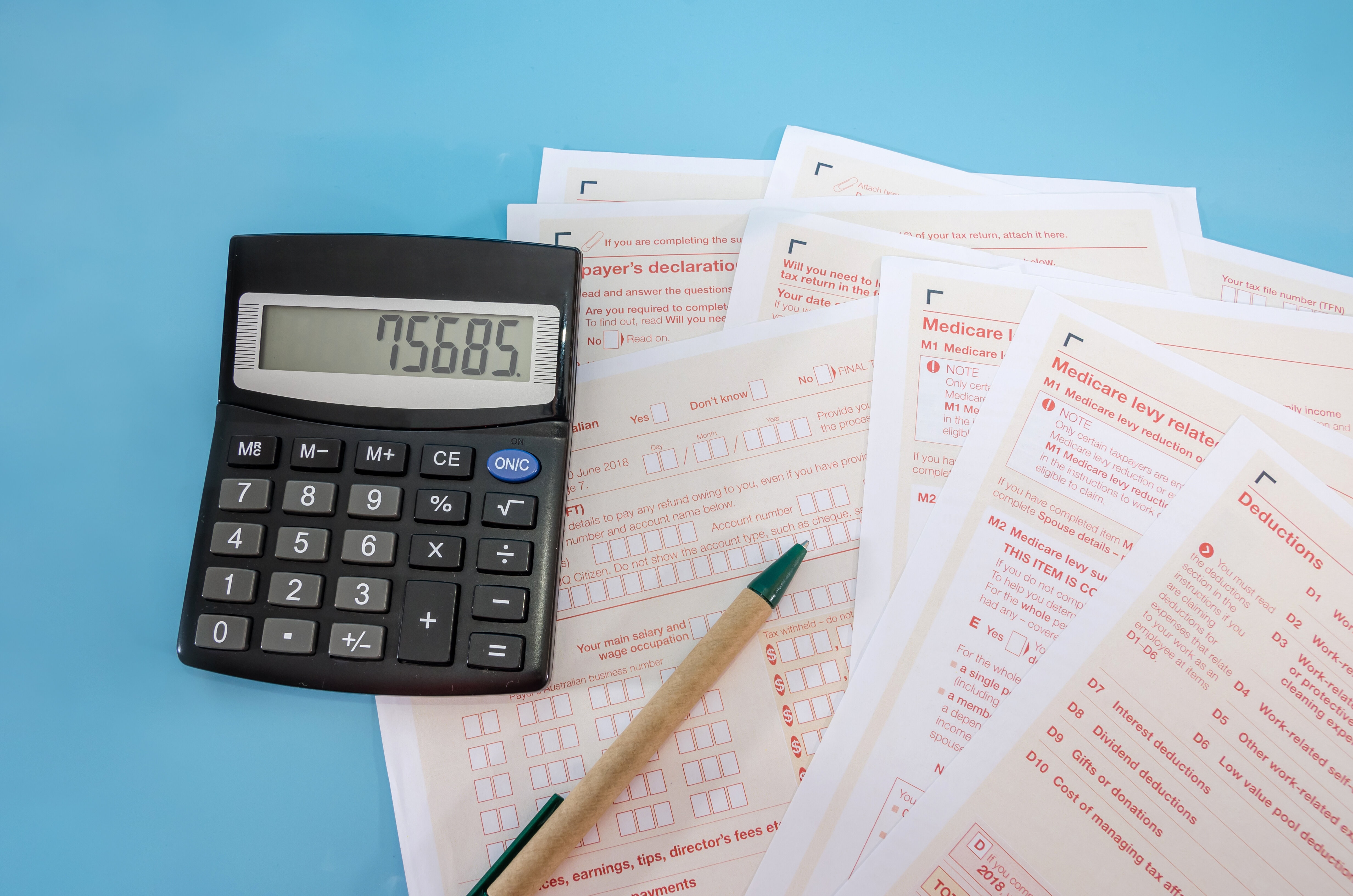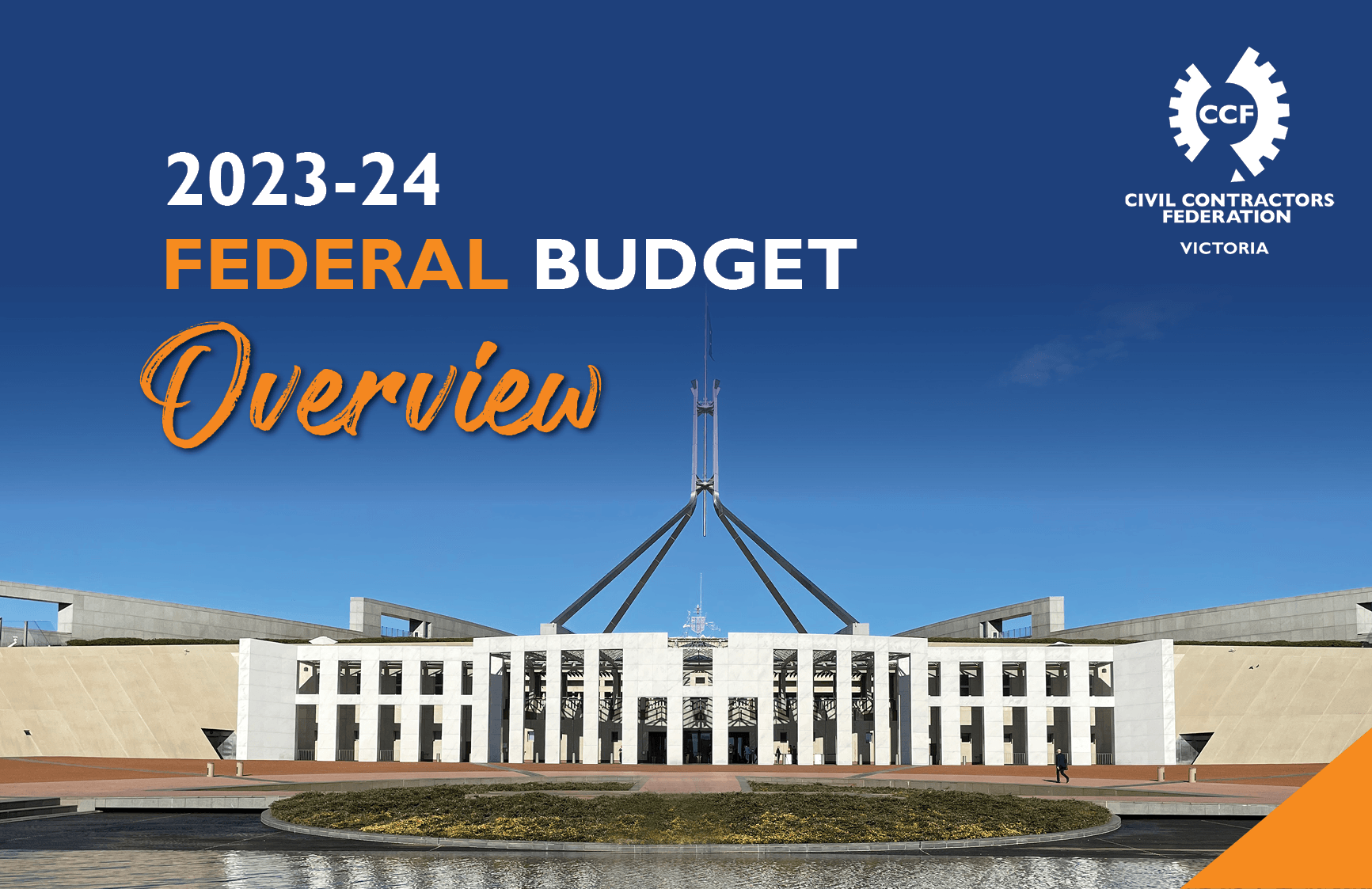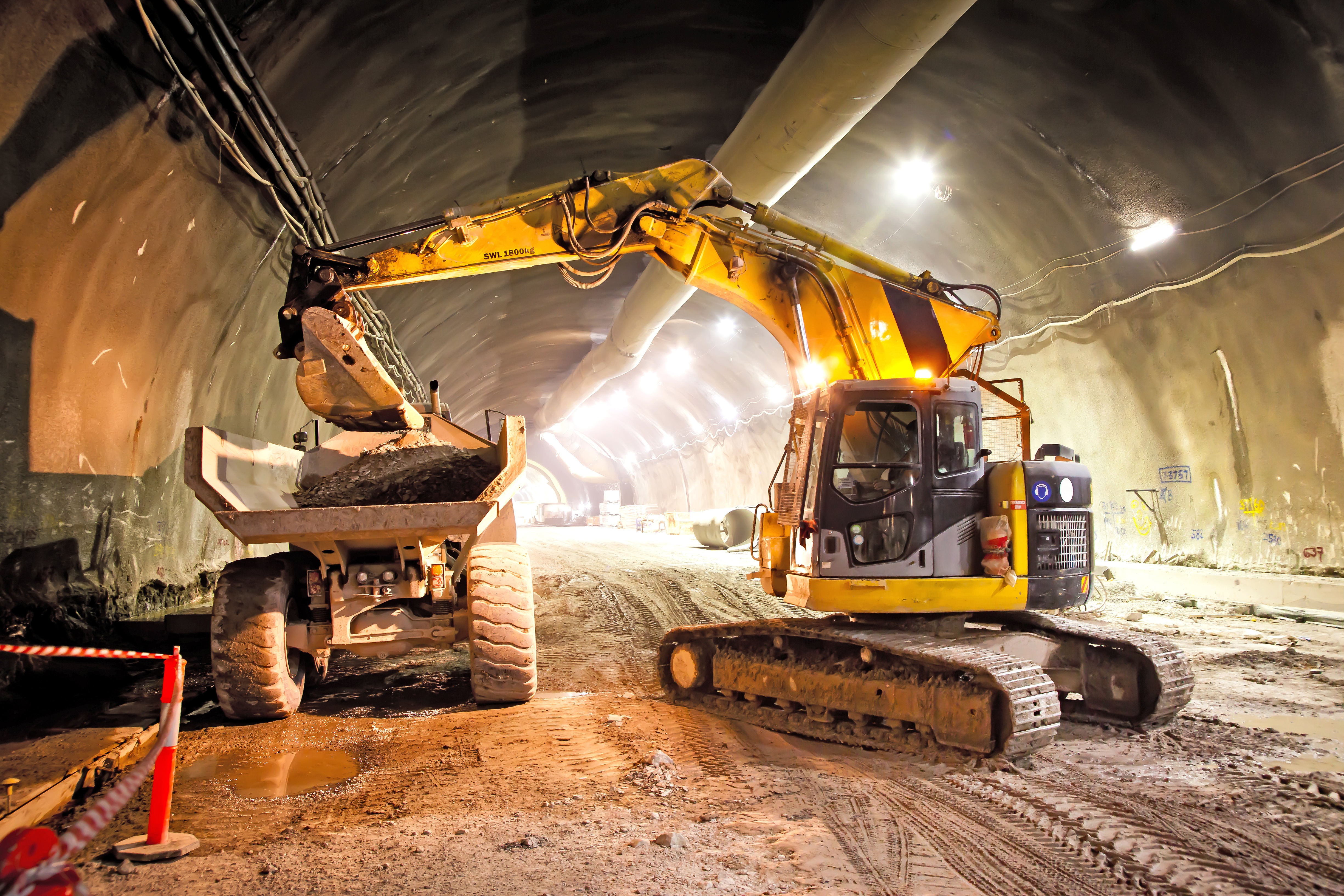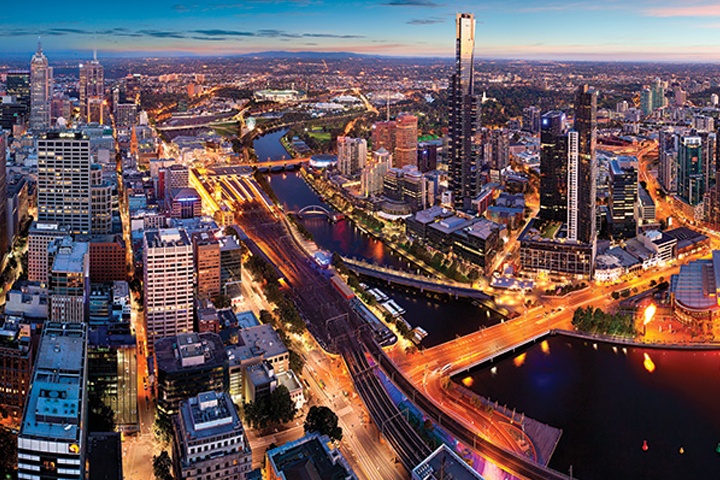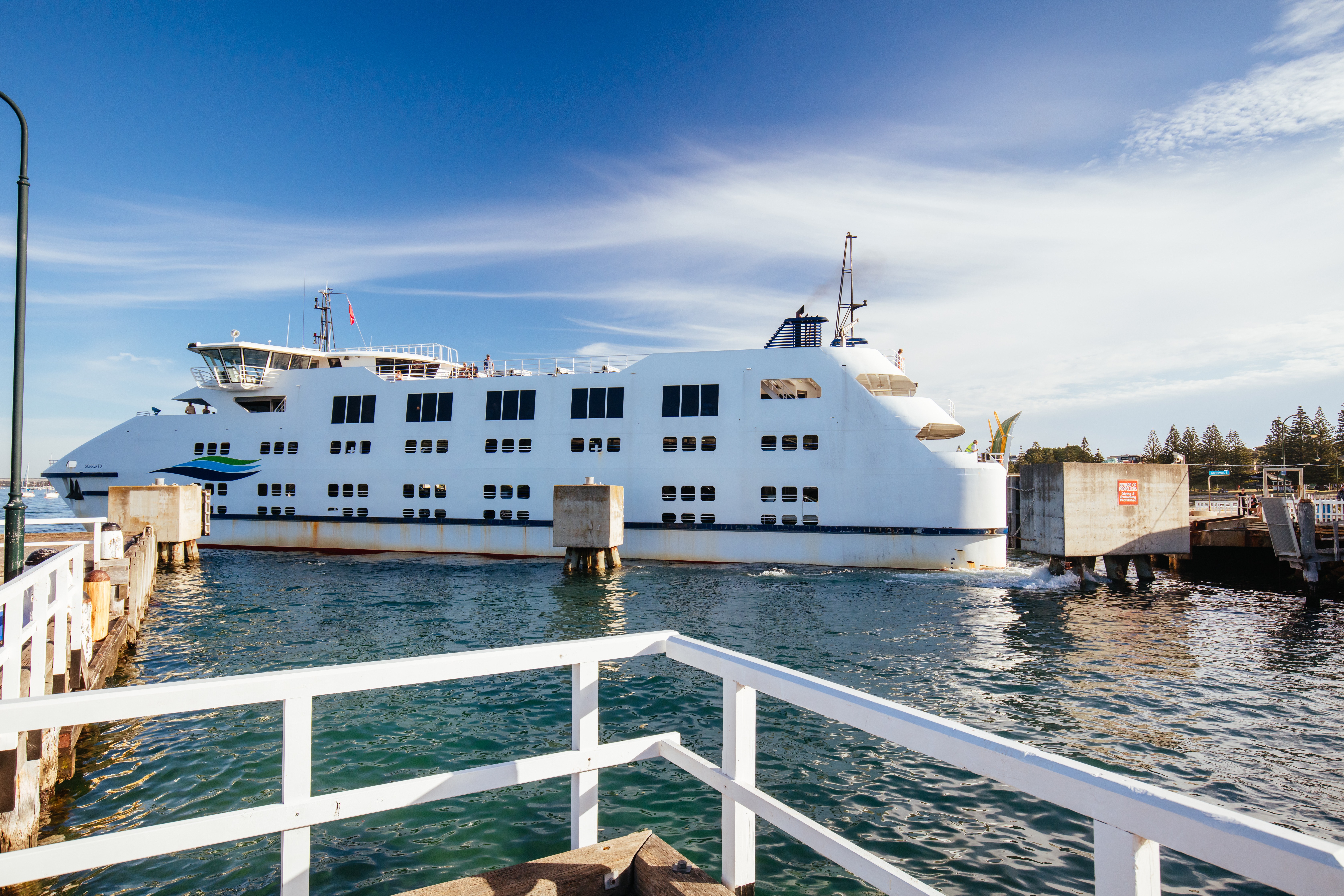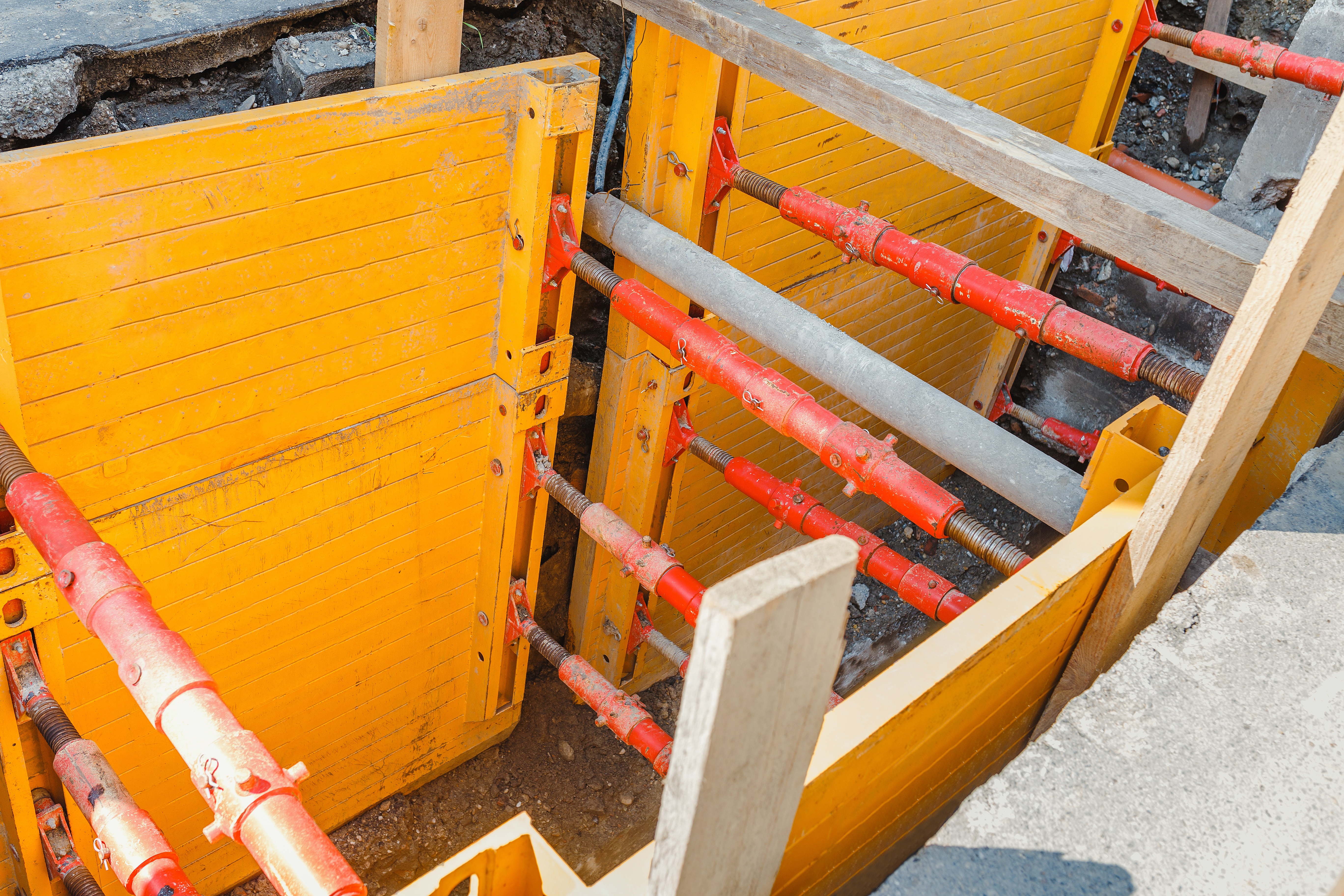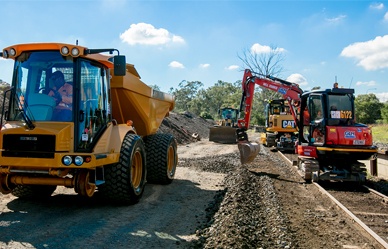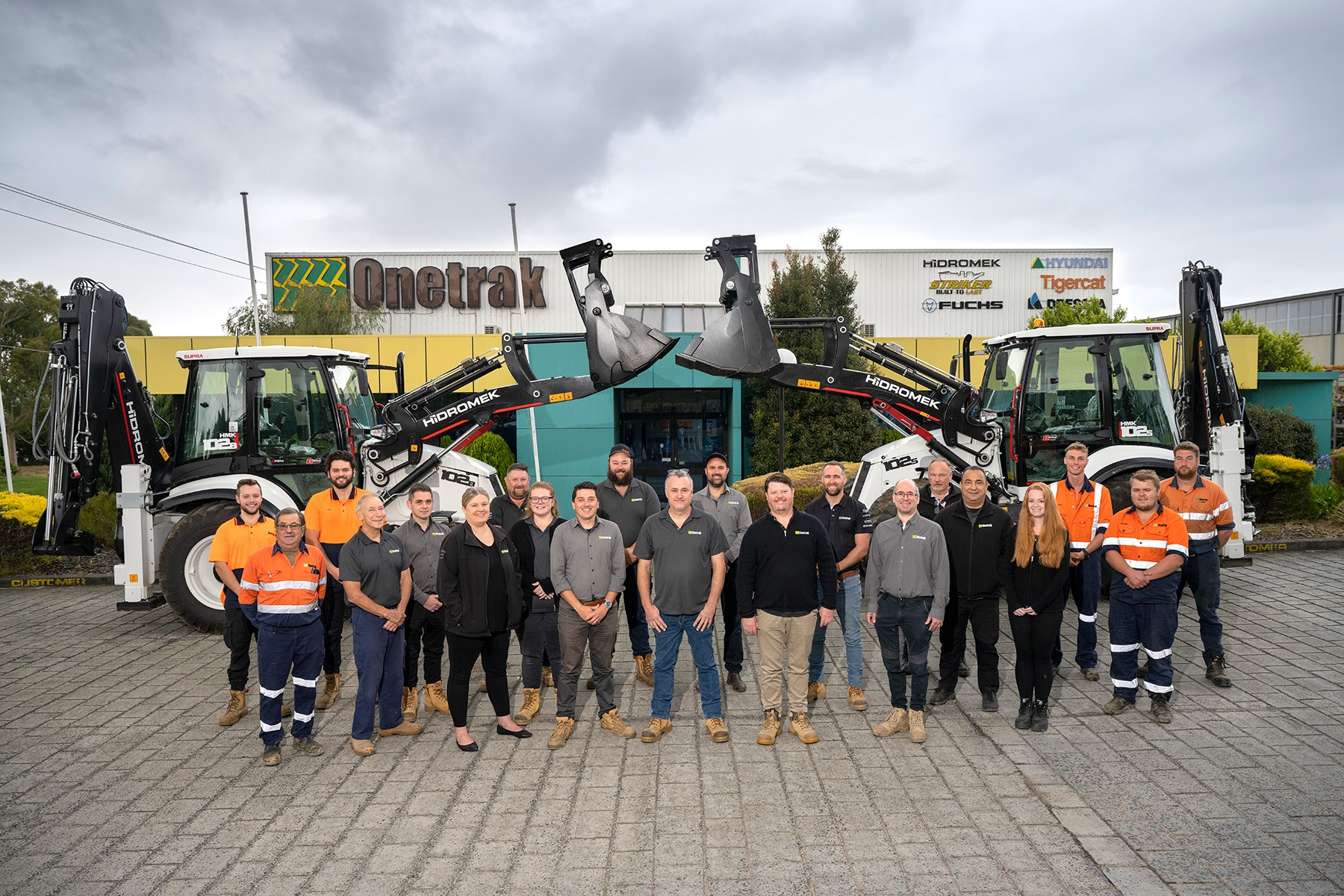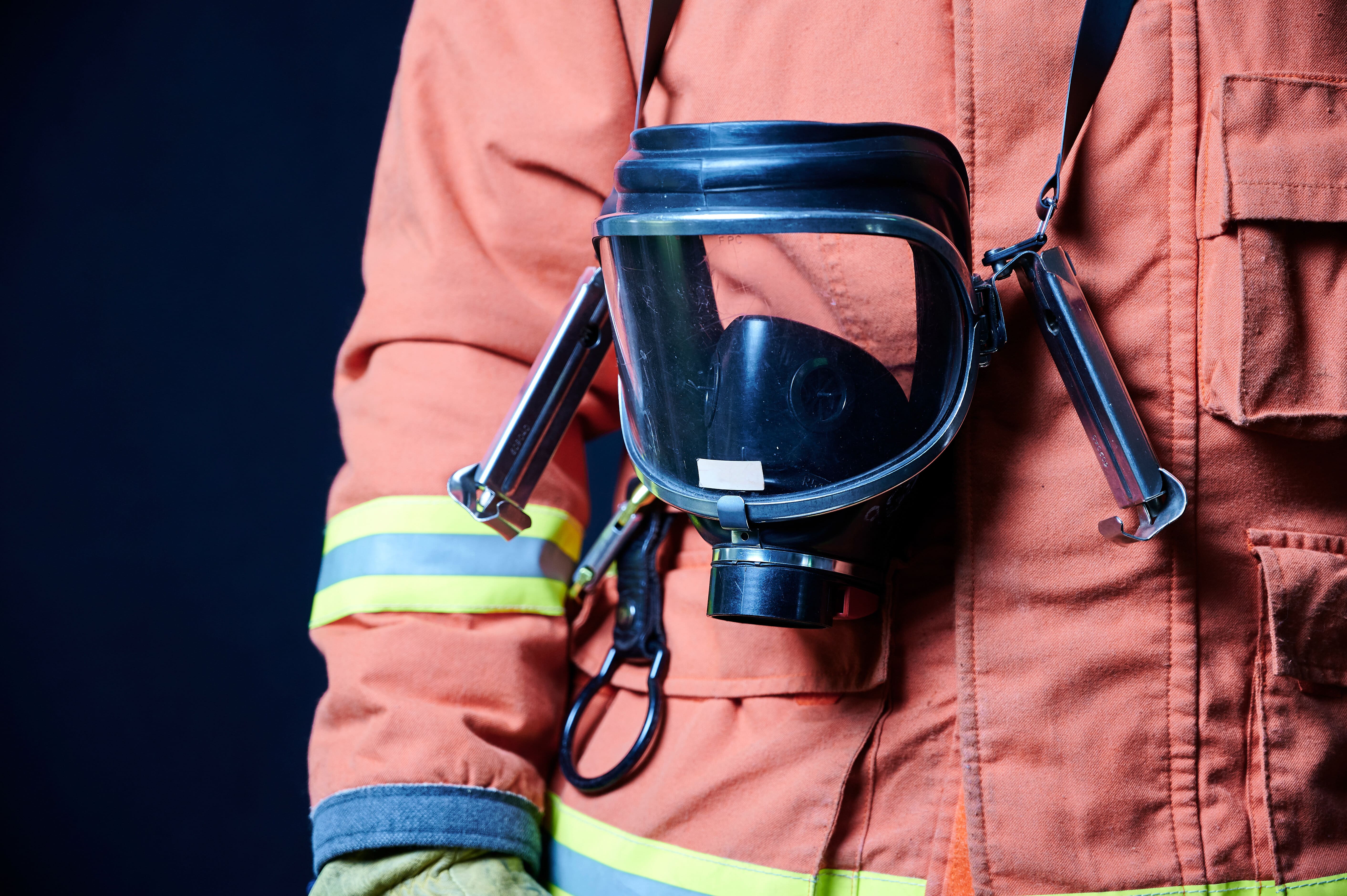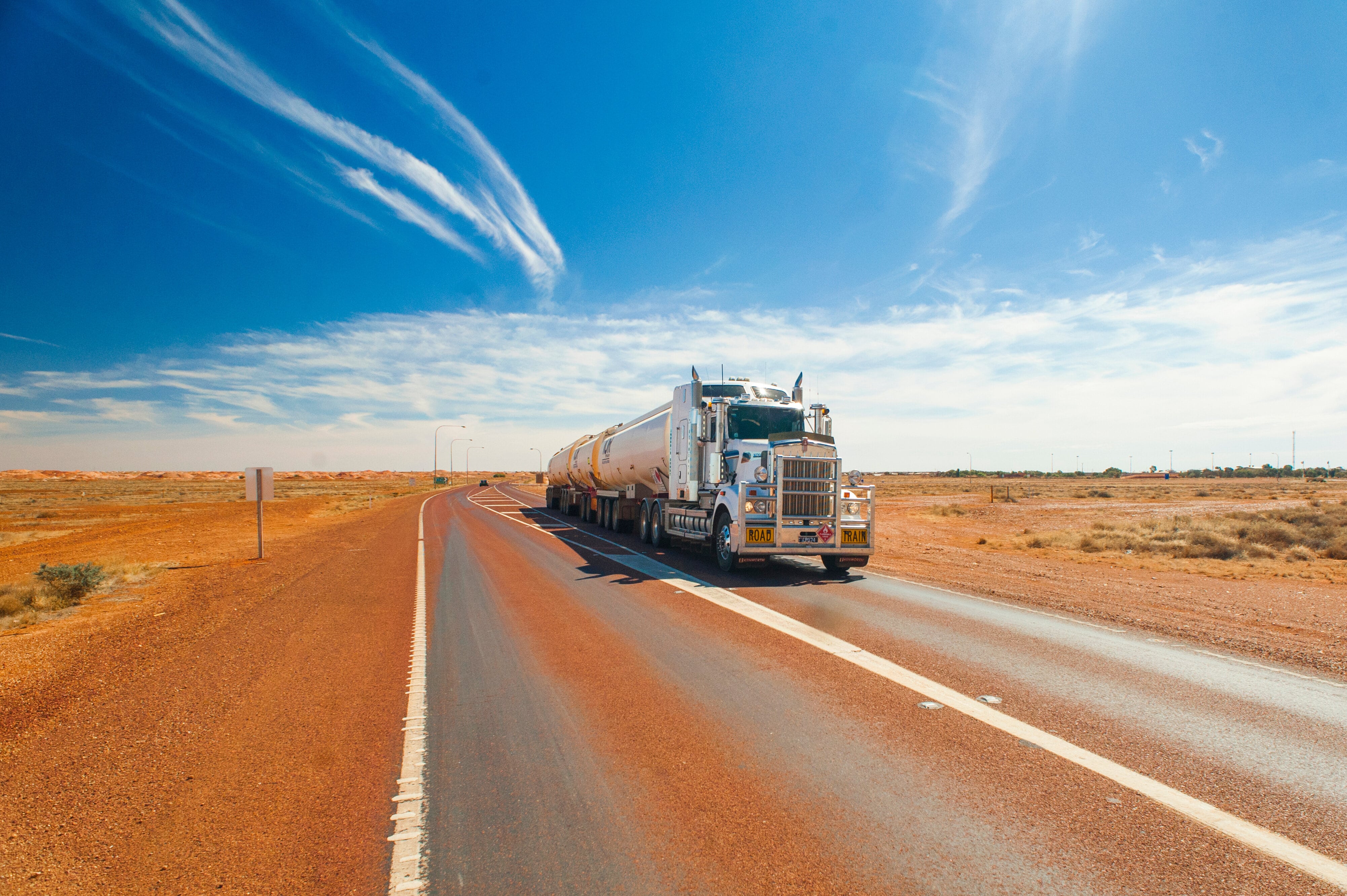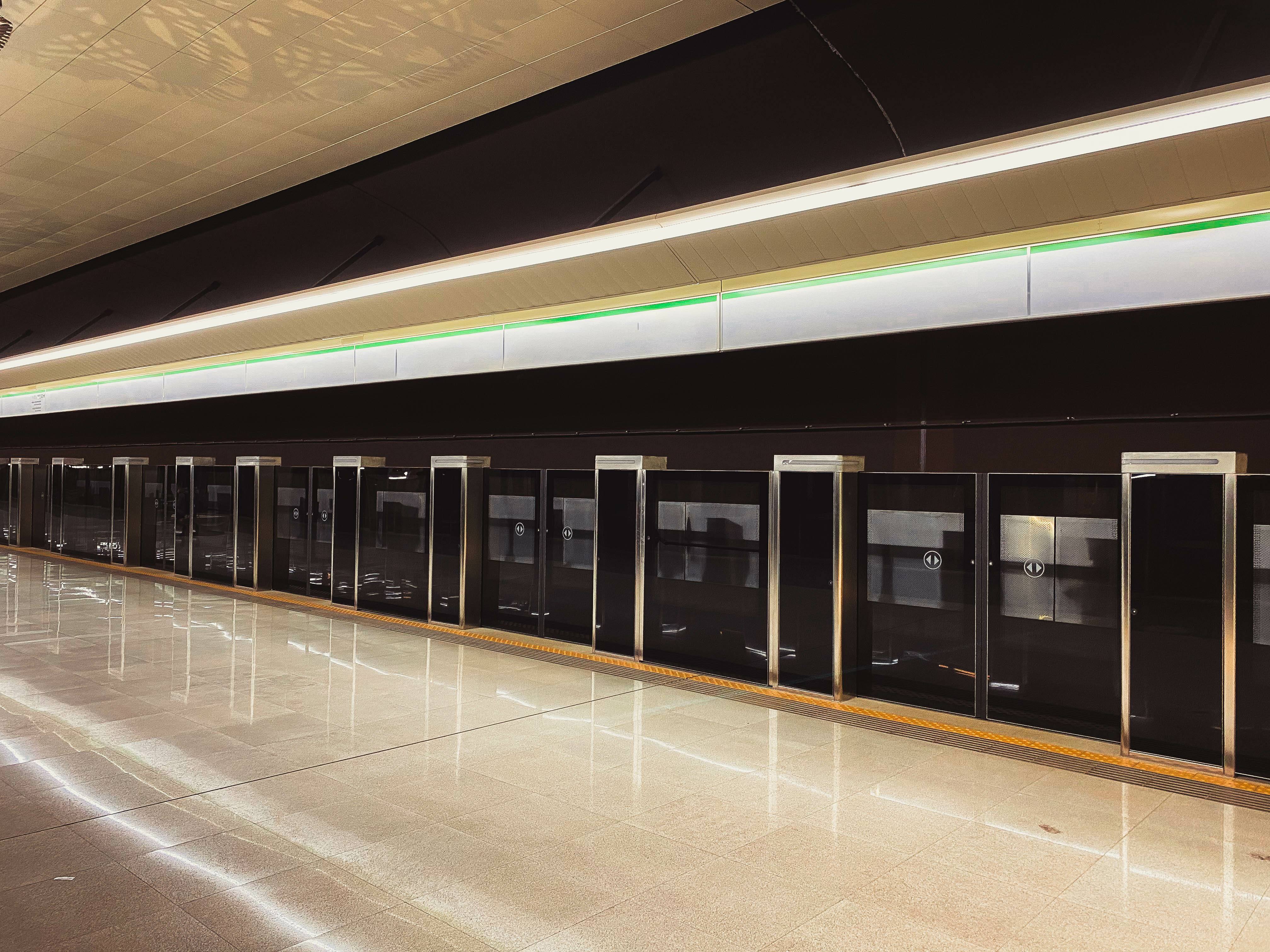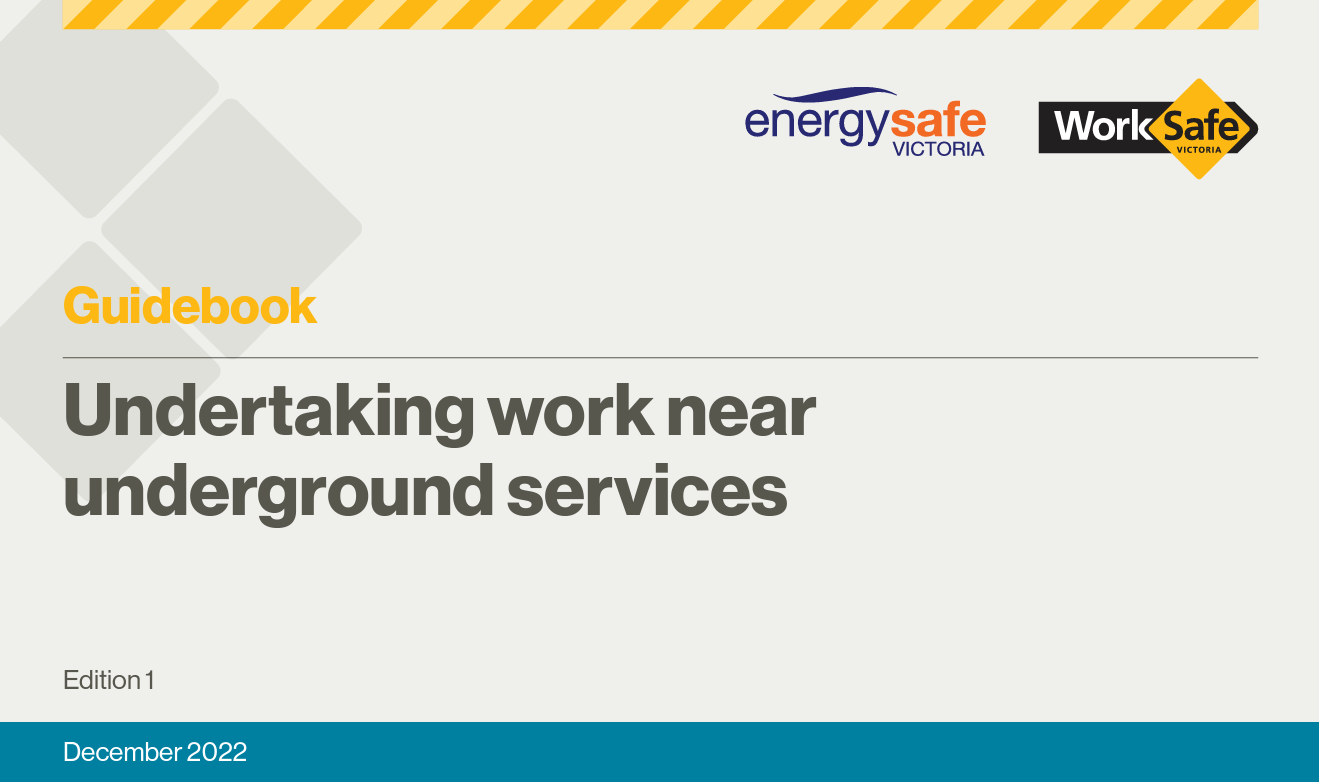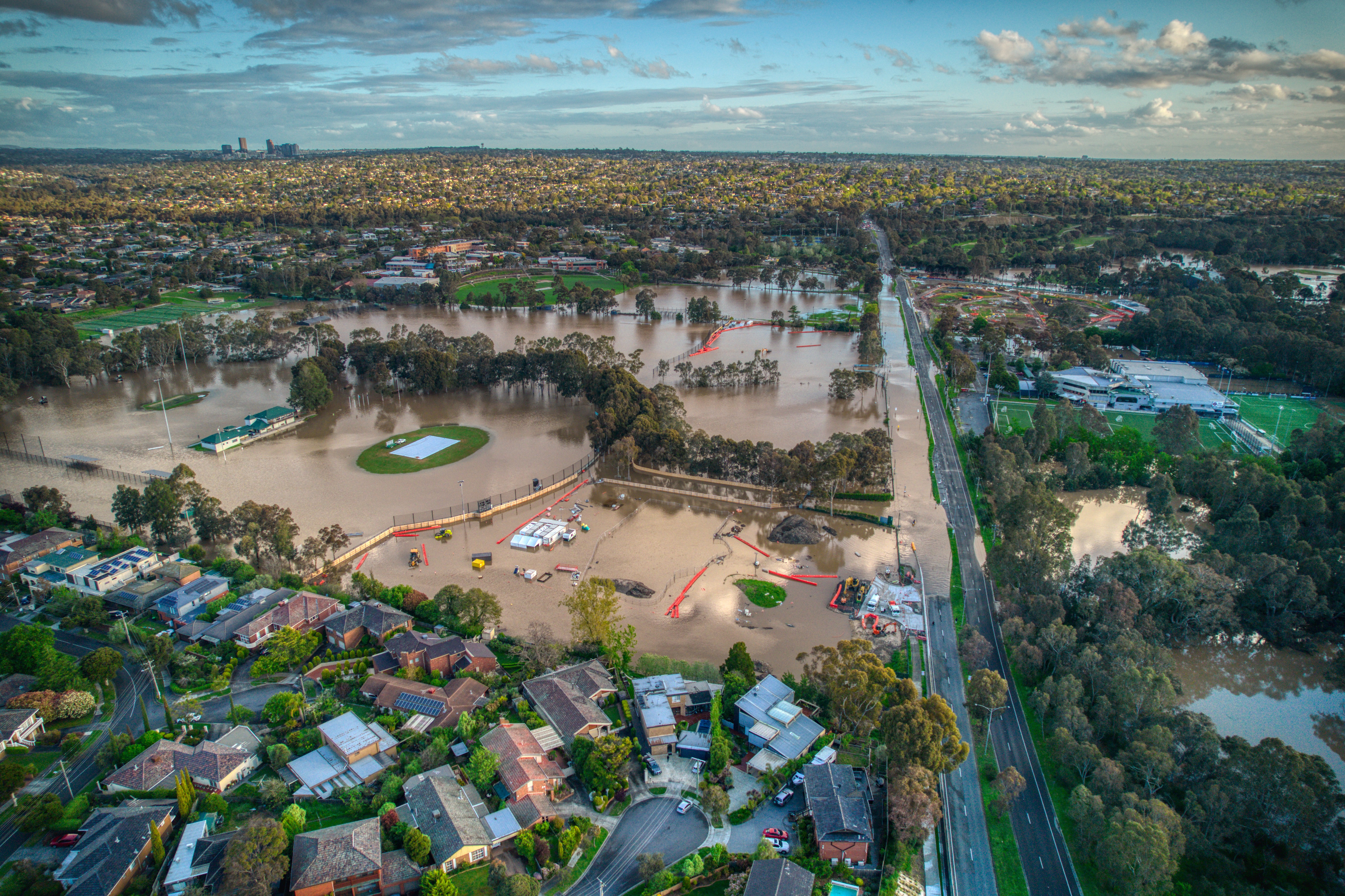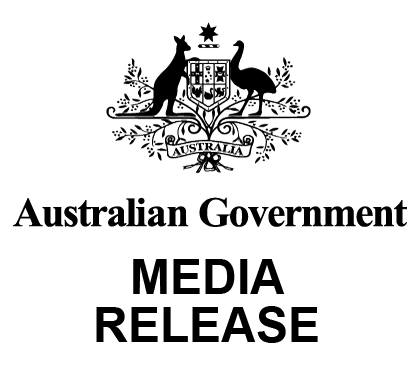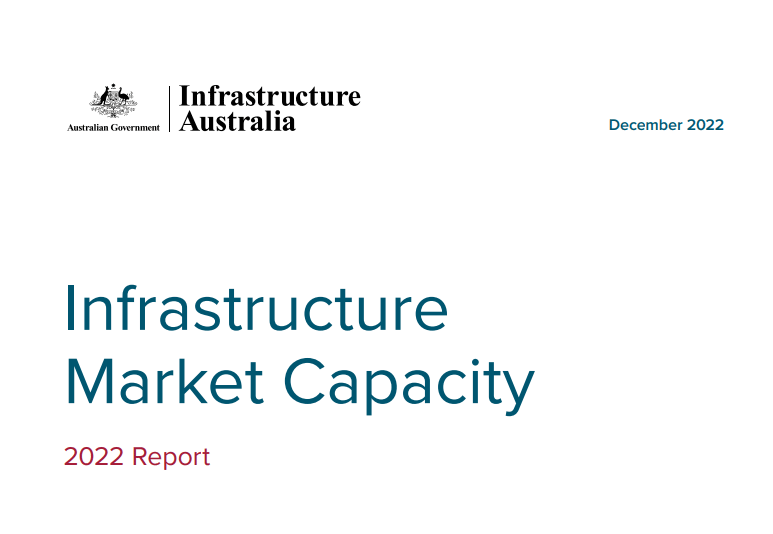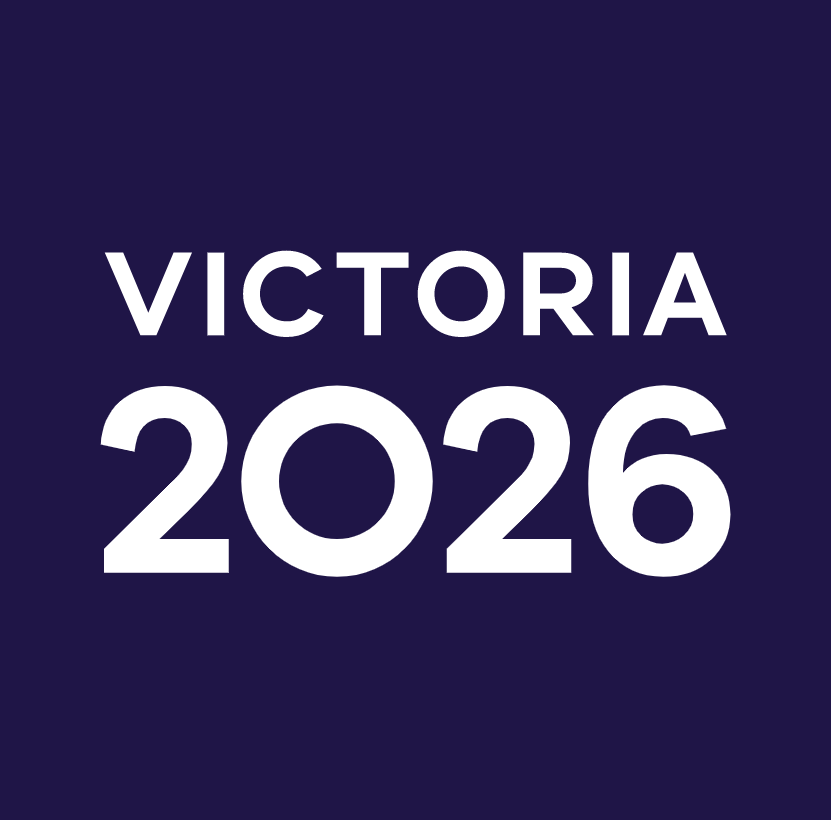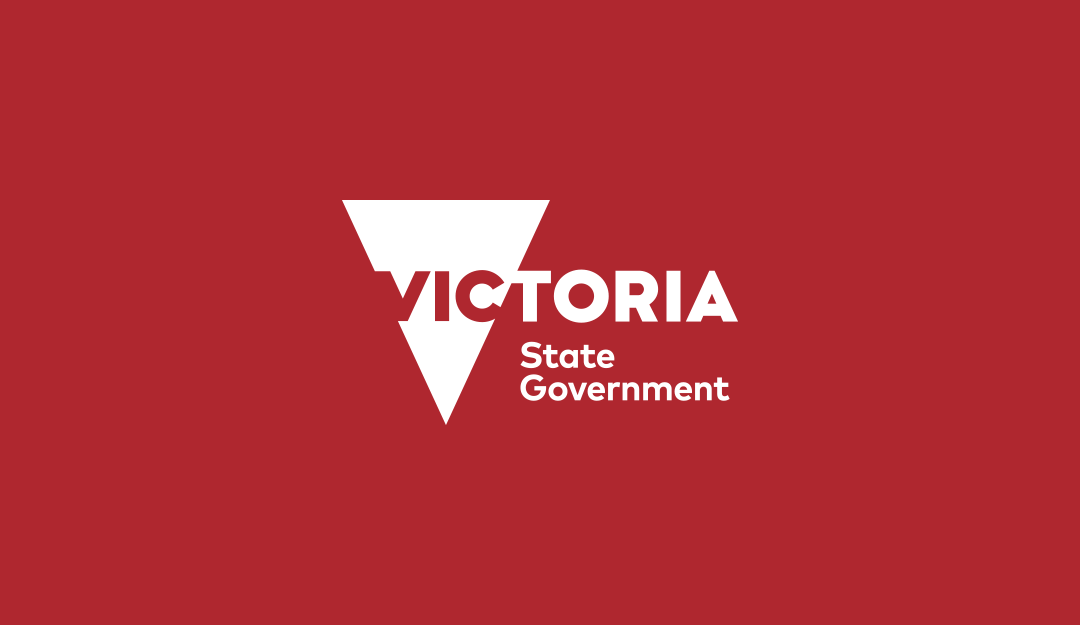To: CCF Victoria staff, members and stakeholders.
2021/22 Victorian Budget: “Creating Jobs, Caring for Victorians” – From the CEO desk.
Today, the Victorian Treasurer, the Hon. Tim Pallas, tabled in parliament the 2021/22 State Budget with the premise of “Creating Jobs, Caring for Victorians”.
The release of the 2021/22 State Budget is “hot on the heels” of the recent Federal Budget, with many of the key announcements already released prior to the tabling of the Budget and the “lock up / industry briefing session” that I attended today.
On the surface, this will be seen as a “big spending” budget to help repair a broken mental health care system and create jobs. While CCF, welcomes the significant funding announcement of $3.8bn to transform the way Mental Health & Well-Being is delivered in this state, the budget is “underwhelming” with little incentive to encourage investment by developers and contractors in the land development sector. A sector represented by over 30% of CCF Victoria’s membership base.
In regards to Mental Health and Well-Being, the Acting Premier, the Hon James Merlino, stated at the briefing, “we are fixing a broken mental health system starting with 20 of 60 new services in Regional Victoria that will be embedded in local communities. This $950m investment will change lives and those who deliver it. We have ahead of us 10 years of work and 10 years of reform on mental health & well-being”.
While it is pleasing to see continued investment in major transport infrastructure works, (circa $22bn per annum in the forward estimates), much of these projects and investments were previously announced, or in pre-planning or construction.
While this CEO update provides you with a brief summary of the key announcements made today and in commending the investment by the State Government being made in Mental Health and Major Transport Infrastructure Projects, Government must also recognise the important role it plays in creating an environment that stimulates, supports and encourages investment from the private sector. This budget fails to deliver on this premise.
The decision by the State Government to introduce a series of tax reforms, targeting Land Tax Rates, Stamp Duty Rates and the introduction of a new “Investment Tax” for rezoned properties, has been widely condemned by many Employer Groups operating in the Land Development sector, including the CCF.
The tax reforms announced late last week was made without industry consultation and will have a significant impact on investor confidence, together with the demand and cost for the delivery of housing projects in this state for years to come. It is critical that we continue to see a sustainable pipeline of works in the Land Development sector that supports property developers and contractors to deliver projects to sustain employment in our industry. The property industry already contributes 59% of Victoria’s tax revenues and these increases and the introduction of a new “Investment Tax” regime, fails to recognise the length of time, the many challenges, costs and risks associated with the delivery of projects in this sector.
This “tax hike” will impact on every single Victorian with the aspiration of owning their own home, or those investing for retirement in the property market through their Self-Managed Superannuation Fund. These much needed funds from the private sector to support our long term social and economic growth in Victoria, now run the risk of flowing to other states. CCF will advocate strongly and present a “united voice” in support of many employer groups, in opposing the introduction and passing of these tax reforms.
In addition, industry Registered Training Organisations (RTO’s), such as CCF’s Civil Train, continue to receive little recognition and funding by Government for the important work they do in building the capacity and capability of their respective industries to deliver jobs through highly skilled based training. Today CCF’s Civil Train RTO, services and delivers “workplace based” accredited training to over 200 Apprentices, Trainees and Cadets, working in the civil construction industry throughout metropolitan and regional Victoria.
With over $89m announced in the Budget for investment in skills training and the establishment of a new Government authority, much of this funding in the VET sector is being directed to the TAFE’s. There has been a missed opportunity in this budget to create a much needed Transport & Infrastructure Innovation Jobs Hub, in accordance with the submission made by Roads Australia and CCF to the State Government in March 2019. The report was the result of 17 government and industry leaders coming together at a Victorian Capacity Building Workshop to develop a proposal to improve the delivery of the Government’s major transport and road infrastructure pipeline, focusing solely on workforce resourcing initiatives that could be implemented immediately and collaboratively between government, industry and training providers.
This hub would see TAFE and industry work collaboratively at a co-located training facility to support delivery of major projects such as the North East Link project with major works for this project be awarded in late 2021. Arguably, the new Victorian Skills Authority (VSA) will pick this up but there is a lack of detail about how industry will engage and collaborate with the TAFE sector in providing …. “People to Train, A Place to Train and Equipment to Train”.
The following is a summary and out-take of the key budget highlights announced today, that impact on the civil construction industry:
Key Economic & Financial Indicators
As set out in last year’s State Budget, the Government’s medium term fiscal strategy involves four steps:
Step 1: creating jobs, reducing unemployment & restoring economic growth;
Step 2: returning to an operating cash surplus;
Step 3: returning to operating surpluses;
Step 4: stabilising debt levels;
A key focus of the Budget under step 1 is “not to take the foot off the pedal”. Forward estimates show an increased operating cash surplus of $11bn by 2022/23 and a net debt increasing to a total of $156.3bn by 2023/24.
Despite the introduction of COVID-19 restrictions during 2020, the Victorian economy is rapidly recovering, with strong economic growth of 6.5% forecast for the next year. More than 200,000 jobs have been created with employment growth of 2.5% forecast in the next year.
The following is a further summary of the key announcements made upon the formal tabling today of the State Budget in Parliament:
Roads/Rail & Transport Sectors
The 2021/22 Budget adds $7.1bn of capital works to the Government’s existing $80bn major transport infrastructure program, with an average spend of $22.5bn per annum in the budget and forward estimates.
This is four times the 10 year average to 2014/15, reinforcing the size scale of this unprecedented spend under Victoria’s “Big Build” initiative. $100m will also be included in the Office of Projects Victoria, Victorian Major Projects Pipeline. The pipeline website at www.opv.vic.gov.au/pipeline makes it easier for businesses, suppliers and contractors to contribute to forthcoming major projects.
Key transport and asset investments in the 2021/22 Budget also include:
- $986m to build 25 new metropolitan commuter trains at Alstom, Ballarat; and upgrade the Craigieburn train maintenance facility to support operating the new trains;
- $465m to support the reliability of the regional train services, including major periodic maintenance;
- $368m to deliver enabling infrastructure for Next Generation Trams, including construction of a new tram maintenance facility in Melbourne’s north-west;
- $240m to upgrade rail infrastructure at Caulfield Junction to segregate the Frankston – Dandenong lines, additional traction power and security fencing;
- $125m for life extension and sustainability programs for the Comeg/Classic fleet of trains;
- $100m to commence detailed design for upgrades to the Calder Freeway (interchange at Calder Park and along the Calder between Gap Rd, Sunbury and the M80);
- $72m to upgrade the Melton / Wyndham Vale corridor to enable future operation of high capacity trains;
- $47m to upgrade high-priority regional & metropolitan roads;
- $39m for a more productive road network for freight, including a program of priority bridge upgrades and renewal works;
- $37m to improve tram and road traffic separations at 6 Melbourne CBD locations;
- $15m for package works to deliver amenity improvements across the public transport network;
Transformational Projects
The capital works program also includes several state-shaping transformational projects including North East Link, Metro Tunnel, West Gate Tunnel, Geelong Fast Rail and the removal of 75 Level Crossings by 2025, with 46 crossings removed so far.
The Suburban Rail Loop (SRL) and Melbourne Airport Rail (MAR) are two landmark projects, SRL will deliver 20,000 jobs and 2,000 apprentices, trainees and cadets with detailed development work, including an investment case, being delivered in late 2021.
Development work on the MAR project has continued during 2020, including assessment of station locations options, concept of operations, packaging and procurement options, value creation and capture opportunities. A tender process for the first packages of works from Sunshine to Albion is expected to commence in 2020/21 financial year, with construction scheduled to begin in 2022. The Victorian and Commonwealth Governments’ have committed up to $5bn each to deliver the MAR project.
Public Private Partnership (PPP)
There are currently three PPP projects in development representing $10bn in capital investment, ie: Frankston Hospital Redevelopment, North East Link, Public Housing Renewal projects.
A key message in the budget is that government will continue to procure infrastructure and services through PPP’s where such partnerships can achieve “value for money”.
Skills Development & Training
The Government had previously announced the formation of a new Victorian Skills Authority (VSA) following the tabling of the Macklin Review earlier this year. As stated, the State Government will commit $89m in the budget for its establishment and investment in skills based training. There is little detail in the budget on how this new authority will operate, other than it is designed to bring together industry, training providers and other stakeholders to produce insights into priority training areas and inform the Victorian Skills Plan to better guide training delivery, where it’s most needed.
Contributions for Government-subsidised accredited training courses delivered by TAFE and other registered training providers is targeted to continue and increase into 2022. This includes subsidy rates, maximum concession contribution rates, and non-Free TAFE waiver rates.
$185m is in the budget to support the teaching workforce with $148m being used to establish the new Victorian Academy of Teaching & Leadership. The Academy’s flagship Teaching Excellent Program, will act as a centre of expertise enabling teachers to advance their skills drawing on latest research. The Academy will also focus on best practice sharing ideas, knowledge, experience and resources. The Budget fails to recognise the urgent need to create pathways and recruit specialised and accredited trainers in sectors such as the civil construction industry.
For those CCF members seeking details on specific projects contained in the 2021/22 State Budget, please do not hesitate to contact me.
Until my next update …. keep well – keep safe.
Kind regards,



